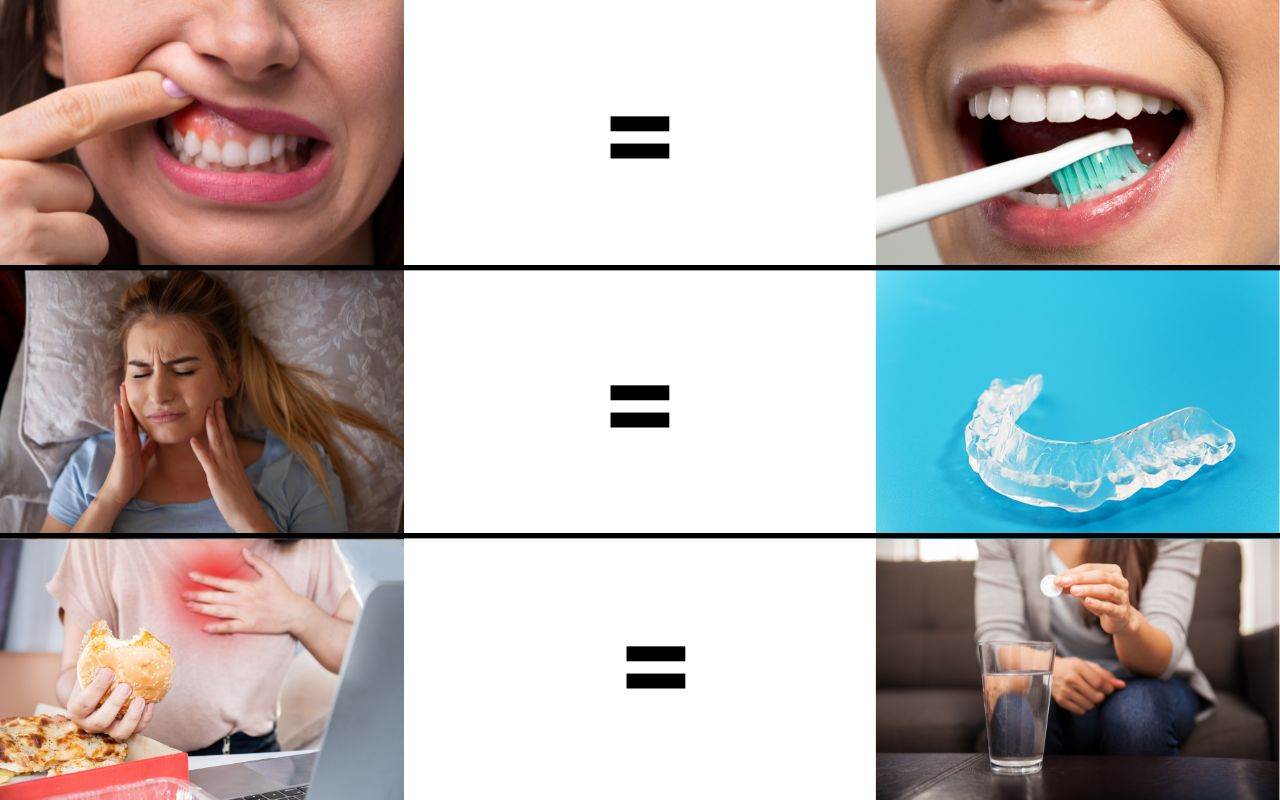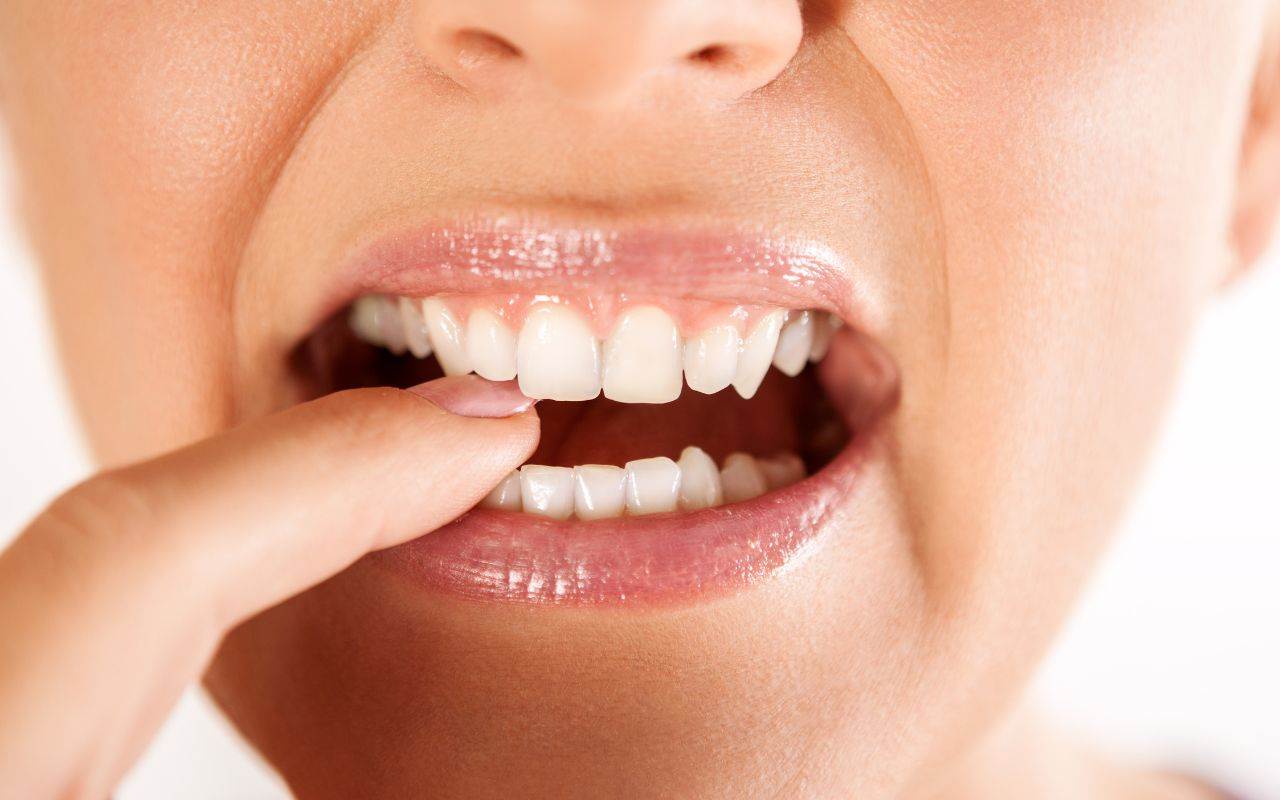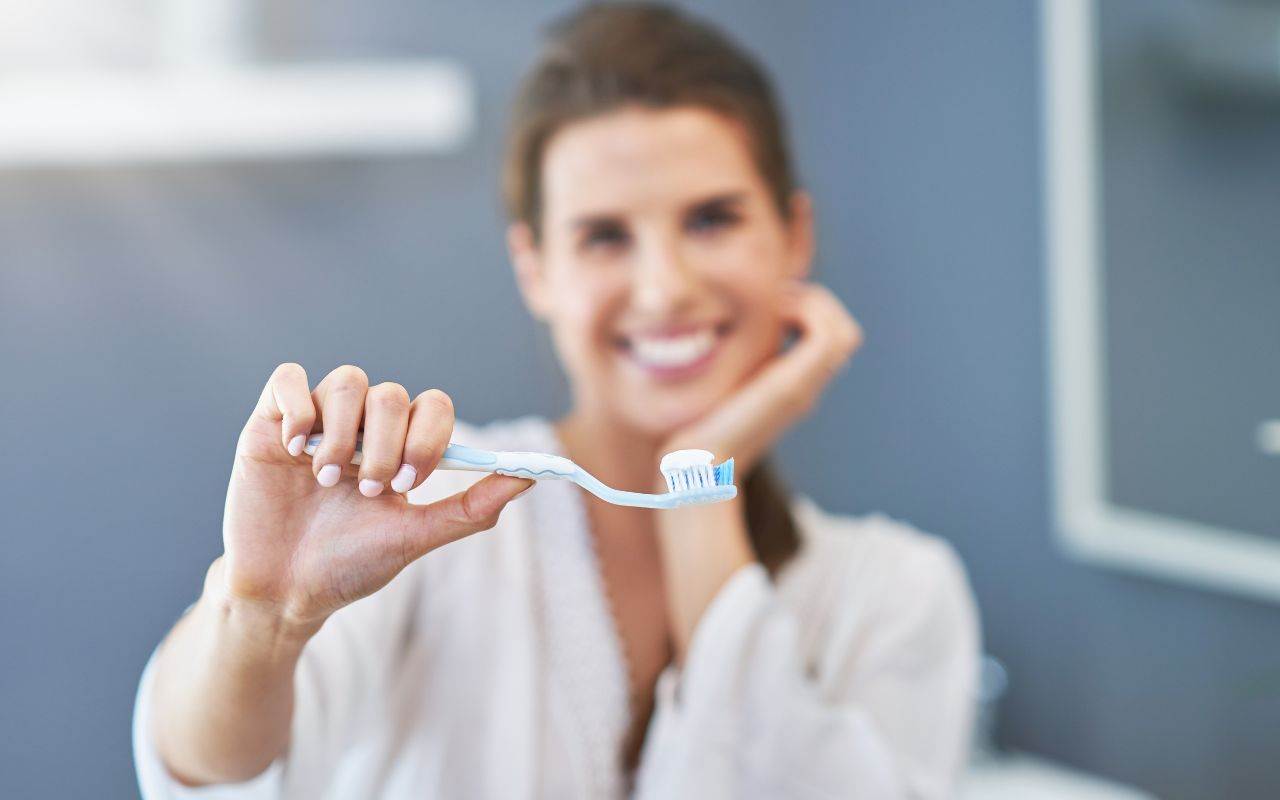If you or a loved one suffers from sensitive teeth, it can interfere with your enjoyment of your favourite warm beverages, ice cream treats, and hot foods. Here, we look at the best treatments for sensitive teeth to help you reduce pain and enjoy a better quality of life.
Why Are My Teeth Sensitive?

What causes sensitive teeth varies from person to person, but might include the following:
- Aggressive brushing
- Using a hard-bristled toothbrush
- Receding gums that expose tooth roots
- Periodontal disease
- Cracked, chipped, or broken teeth
- Grinding and clenching your teeth when stressed or sleeping
- Teeth whitening products, or improper or overuse of whitening products
- Being aged 25 to 30 which increases the risk of teeth sensitivity
- The presence of plaque on the root surfaces
- Using mouthwashes containing acids
- Acidic foods
- Acid reflux disease
- Recent dental procedures
What Are The Symptoms Of Sensitive Teeth?

Symptoms of sensitive teeth include pain or discomfort triggered by the following:
- Hot or cold foods and beverages
- Sweet or acidic foods and beverages
- Cold air
- Cold water
- Your dental routine, such as brushing or flossing
- Alcohol-based mouth rinses
In extreme cases, you might experience pain or discomfort all the time, while milder cases require one of the above triggers to cause symptoms. If you experience any of the above symptoms, speak to your dentist so you can start using the appropriate toothpaste and toothbrush to reduce the chances of sensitivity worsening.
If you experience any of the following more serious issues, speak to your dentist right away:
- Spontaneous tooth pain that occurs without an obvious cause, despite using the proper toothpaste
- Tooth sensitivity localized to one tooth
- Sharper pain
- Staining on the sensitive tooth
- Pain when biting down or chewing
These symptoms indicate possible issues that should be addressed as soon as possible.
How To Stop Pain From Sensitive Teeth

How you stop the pain is often based on possible causes, such as:
- Receding gums: If your dentist tells you your gums are receding, they can provide instructions on how to brush your teeth to avoid further recession and reduce pain. It is important to maintain good oral hygiene to avoid progression that can lead to more serious procedures, such as a gum graft.
- Use a nightguard: If you are clenching or grinding your teeth, wearing a nightguard will help reduce the pressure and damage that can cause tooth sensitivity.
- Antacids for reflux: The acids produced from reflux can contribute to tooth sensitivity. Using antacids to manage reflux or speaking to your doctor about possible acid inhibitors for more severe cases can help reduce tooth sensitivity.
How To Stop Sensitive Teeth Pain Immediately

Applying a desensitizing toothpaste directly to the sensitive area can provide immediate relief. In some cases, topical oral pain relievers can also help.
Effective Home Remedies For Sensitive Teeth

There are a few home remedies you can try to help reduce tooth sensitivity, including:
- Salt water rinse: Salt acts as an antiseptic that can reduce inflammation and discomfort related to tooth sensitivity.
- Hydrogen peroxide: This mild antiseptic can be used as a mouth rinse with two capfuls of 3% hydrogen peroxide added to equal parts warm water. Do not swallow the solution, and be sure to rinse your mouth out and spit out the water to flush it out.
- Honey and warm water: This is a more pleasant mouth rinse that can reduce swelling, pain and inflammation that cause pain.
- Turmeric: Turmeric is a powerful anti-inflammatory treatment and can be applied as a paste massaged into your teeth twice a day.
- Green tea: Green tea for sensitive teeth can be used twice a day as a mouthwash to reduce inflammation.
- Vanilla extract: Applying vanilla extract to a cotton ball and placing it on the sensitive area for a few minutes can help relieve pain and work as an antiseptic.
Best Toothpaste For Sensitive Teeth

Speak to your dentist about the best toothpaste for sensitive teeth. They will consider your oral health and recommend a product that helps address all your needs.
Best Treatments For Sensitive Teeth

Your dentist can examine your teeth to determine the best professional treatment for sensitive teeth that will keep you comfortable, including:
- Desensitizing toothpaste: As mentioned, your dentist can recommend the best desensitizing toothpaste to help block pain.
- Fluoride treatment: Applying fluoride to the sensitive areas of your teeth can help reduce pain by strengthening your tooth enamel. In more serious cases, your dentist might give you a fluoride prescription so you can apply it at home with a custom tray.
- Bonding: Applying a bonding resin to exposed root surfaces causing pain can help protect the roots and reduce sensitivity.
- Surgical gum graft: Loss of gum tissue can sometimes require a gum graft, taking a small amount of tissue from another area of your mouth and attaching it to build up tissue in the affected area.
- Root canal: If tooth sensitivity is related to a specific tooth’s dental pulp, a root canal may be the best solution.
How To Prevent Sensitive Teeth

To prevent sensitive teeth, you should stick to a strict home dental hygiene regime, including brushing twice a day (with a fluoride toothpaste using a soft-bristled toothbrush) and daily flossing. Your dentist or hygienist can offer advice on how to brush using gentle strokes to avoid damaging your gums and causing recession.
If you know you grind your teeth at night, you can also speak to your dentist about a customized nightguard to protect your teeth from damage that causes tooth sensitivity. You should also rinse your mouth out with water after eating or drinking acidic substances and choose to drink water more often to balance the acid levels in your mouth.
There are also foods and drinks you should avoid to help prevent sensitive teeth, including:
- Carbonated drinks
- Wine
- Ice cream
- Hot coffee
- Hard and sticky candy
- Citrus fruits
- Pickles
- Pineapple
- Tomatoes
- Chewing ice or drinking beverages with ice
These foods and beverages not only aggravate already sensitive teeth but can also remove small amounts of tooth enamel, leading to tooth sensitivity. When you drink acidic liquids, always use a straw to reduce direct contact with your teeth.
If you are wondering how to fix sensitive teeth, call us today at 905-775-5307 or click here to request an appointment.
